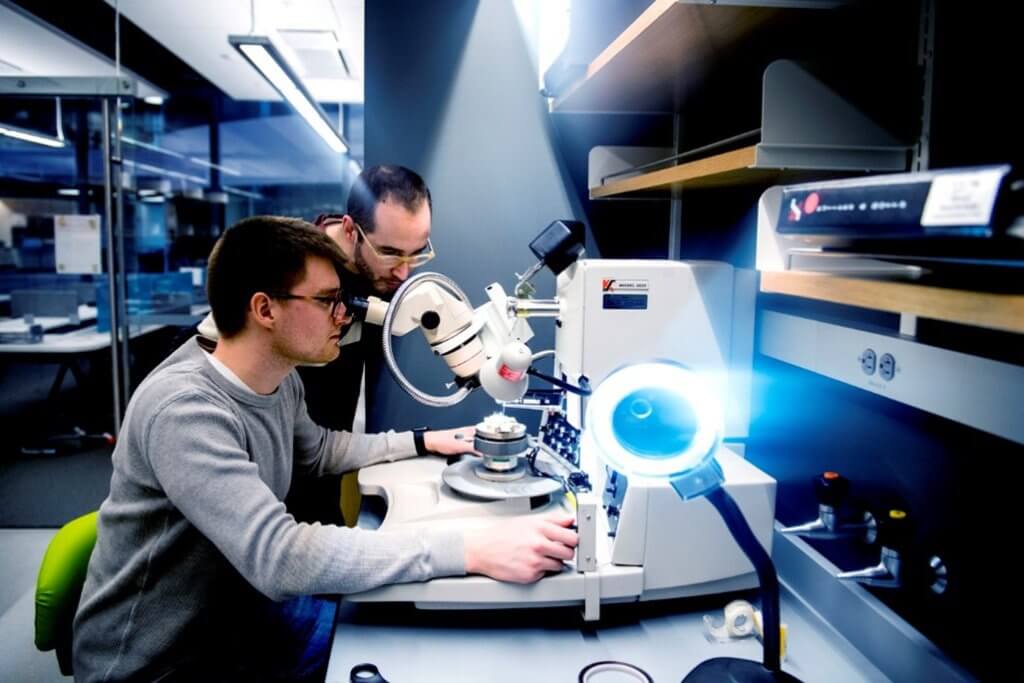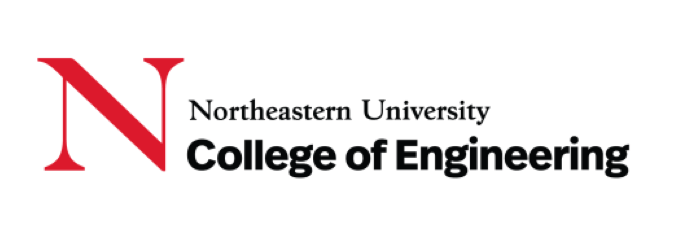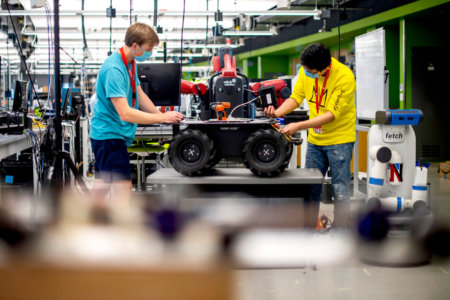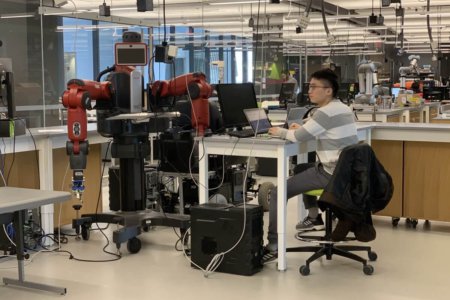Qifei “Rose” Lu, a MS in Information Systems graduate, was drawn to Northeastern University’s engineering programme in no small part because so many tech giants are based around the campus.
Within a year, she was gaining experience with Northeastern’s cooperative education programme, working at Amazon. She was assigned to an anti-fraud project on behalf of Amazon Web Services, and this ultimately led to her full-time job as a software engineer at Facebook after graduation.
Rose’s achievements are telling of the impact of Northeastern’s co-op programme. The goal is to produce highly competitive, highly employable graduates. For over 100 years and counting, the university’s top-of-the-line cooperative education is held in high regard by both students and employers. The US News and World Report ranks the university first for internships/co-ops.
Unlike most universities, Northeastern offers its co-op opportunity to graduate students, enabling them to complete a co-op in the course of their degree programme. During the 2020 academic year, the Graduate School of Engineering placed over 1,000 students with some of the most sought after technical skills in positions in the US and globally.
MS in Mechanical Engineering and MS in Bioengineering graduate Andy (Qingchao) Kong from China spent his co-op at an American company as part of his education. It wasn’t just any American company. It was Abiomed — the company that developed the first artificial heart — where he worked on the design team for the company’s flagship Impella heart pump. Caitlyn Hastie, who holds 10 patents and has 13 more patents pending, was his supervisor.
“We were working on real-world engineering problems,” explains Kong. “When you’re at a company like Abiomed, you have to take the fundamentals you learn in textbooks and apply them to a final product. We were making a real impact on the lives of patients so they could return to their families and have a good quality of life.” He now works full-time at Abiomed.
Other students are placed in co-op positions at top companies such as Microsoft, NASA, Draper Laboratory, iRobot, Facebook, Hasbro, Tesla, and more. With more than 2,000 employer partners globally, “up to eight-month co-op positions are available in companies ranging from Google to two-person start-ups and everything in between,” says Lorraine Mountain, assistant dean of cooperative education in the College of Engineering at Northeastern University.
In keeping with their professional status, graduate engineering students on co-op typically earn between US$20 to US$30 per hour, with those in certain specialties earning more than US$40 an hour. Co-op is also beneficial to international students because they gain valuable job experience and exposure to American culture without the complications of obtaining an H-1B visa.
Co-op opportunities span 22 master’s degrees spread across several core disciplines — Bioengineering, Civil and Environmental Engineering, Chemical Engineering, Electrical and Computer Engineering, Mechanical and Industrial Engineering — and a variety of multidisciplinary degrees in the areas of Software, Data, and Network Systems, such as information systems and cyber physical systems.
Each student is assigned a co-op advisor who specialises in their field. “Our knowledge of the companies and the fields they operate in runs much deeper than at most graduate engineering programmes,” says Maricla Pirozzi, director of cooperative education. “Our co-op advisors know the field like the back of their hands.” Students also participate in a co-op preparatory class and benefit from career programming, workshops, and networking opportunities.

Source: Northeastern University College of Engineering
With Northeastern University an R1 research institution, engineering students also participate in research co-ops in several federally funded research centres or an extensive partner network of research labs, medical institutions, and universities.
Roshani Patil, who recently graduated with an MS in Bioengineering, is now an immuno-oncology scientist at Novartis. Originally, she was interested in studying cancer cell detection and imaging modalities, so more on the detection side of the equation. Her co-op at KSQ Therapeutics in Cambridge, however, focused on cancer therapies — an eye-opening experience that ended up influencing her career path. “My Northeastern experience, including my co-op, helped me decide the path that I wanted to take,” she says. “I really needed that to help guide me to where I wanted to be.”
The university also offers an Experiential PhD programme which allows doctoral students to conduct academic research while taking part in internships, corporate fellowships, embedded-employee fellowships and special initiative programmes. “I’ve always been interested in the bridge between academics and industry,” says Piotr Kulik, a PhD in Electrical Engineering candidate who is working on a radio frequency project funded by Raytheon Technologies and conducted at Northeastern’s Kostas Research Institute.
“I’m trying to solve a research question in a way that is both academically challenging and of use to industry,” he explains. “Because we are working with industry, the product of our research has to be repeatable, cost-effective, and capable of being potentially mass-produced.”
Northeastern engineering students gain real world experience, as well as challenge, network, expand and finetune their knowledge within their respective industry well before stepping into the workforce full-time. To follow in their footsteps with an engineering education like none other, click here.
Follow Northeastern University on Facebook, Twitter, Instagram, YouTube, and LinkedIn













